

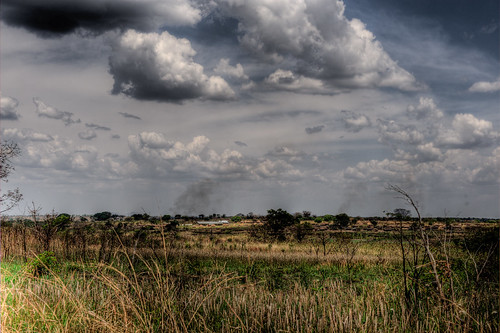

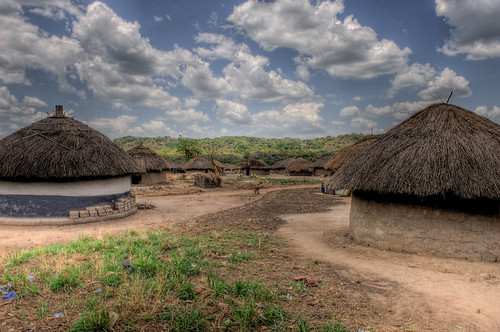
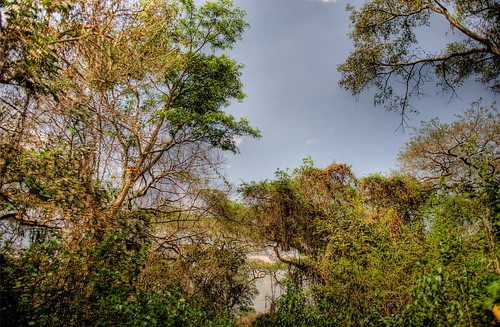
 I've spent the last 3 days following the ladies to remote villages in the grassland surrounding the refugee camps. A local social worker is guiding us to surviving relatives, guardians, or family friends of each of the orphans back at the UJV. The mission is twofold. In the more mundane cases, where relatives are known, they are given their childs report cards from school, records are updated, and legal custodial documents are renewed. In the more difficult cases, at least half the time, the task is more like personal archeology. Being orphans displaced by war and epidemic, most of them once taken by or having fled the rebels who had roamed this area killing, raping, and kidnapping, many of the kids have cloudy personal histories. Who their families were, how they died, where they are from, when they were born, and even what is their actual age are often incorrect or disputed facts. Some of the kids have records that conflict wildly with their physical traits or the accepted facts of their personal history. For instance, one child's birth certificate identifies them as being a solid ten years older than they could be.
I've spent the last 3 days following the ladies to remote villages in the grassland surrounding the refugee camps. A local social worker is guiding us to surviving relatives, guardians, or family friends of each of the orphans back at the UJV. The mission is twofold. In the more mundane cases, where relatives are known, they are given their childs report cards from school, records are updated, and legal custodial documents are renewed. In the more difficult cases, at least half the time, the task is more like personal archeology. Being orphans displaced by war and epidemic, most of them once taken by or having fled the rebels who had roamed this area killing, raping, and kidnapping, many of the kids have cloudy personal histories. Who their families were, how they died, where they are from, when they were born, and even what is their actual age are often incorrect or disputed facts. Some of the kids have records that conflict wildly with their physical traits or the accepted facts of their personal history. For instance, one child's birth certificate identifies them as being a solid ten years older than they could be.Additionally, the process of clarification often reveals shocking secrets about the kids, and the two UJV representatives are very good at sniffing out hidden 'truths'. Today I saw a man admit that he was not in fact an orphaned childs uncle, but his father. And it was discovered that children who were thought to be brother and sister, having survived to this point believing so, are not related by blood at all.
Desperation, scarcity, and fear often combine to force people who might otherwise be loyal and good to make terrible decisions. An extra child, one belonging to a dead relative, neighbor, or perhaps one-to-many of your own can be, in the sharp calculous of survival, that awful tipping point. One extra mouth to feed, one weight too many to carry whilst fleeing in the night, a burden whose odds are slim anyhow. So names are forgotten, stories are changed, responsibilities lapsed. Who cares if it is not who it thinks it is, maybe it's better that an unwanted child be taken by these Munu's (Acholi for white person) to an orphanage far away from this place. Out here, where life is so close-to-the-bone, perhaps a lie, even a huge one, is a favour.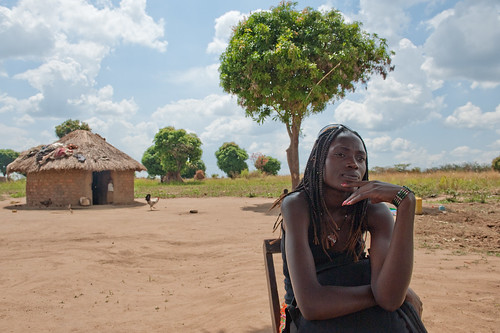
Looking out over the tranquil grasslands, dotted with circular huts, termite hills, and occasional mango trees, it's easy to forget how devastated this area has been by war and HIV. One does not need to travel far (far in these parts can easily be 10 miles by foot) to find a burned out, abandonded village, a place where families once dwelt, with the often shallow and unmarked graves of the former inhabitants aside the shell of the circular home. Even the inhabited villages, the cleanest and most prosperous, will have a well stocked graveyard out back. The lucky souls will have their resting places covered with a cold duvee of formed, smoothed, cement, their names and dates inlaid below the crucifix. '1965-2005', '1978-2007', '1986-2006', and of course '?-2004'; dates of lives too short. Every graveyard has an all-too-large flotilla of small graves, little underformed things, easily mistaken for early stage ant hills or the mounds of mud sometimes formed by the surging runoff from a thunderstorm. But you know who lies beneath them, forever claiming a lifetimes worth of unclaimed naps. There's often 10 of them for every adult sized one.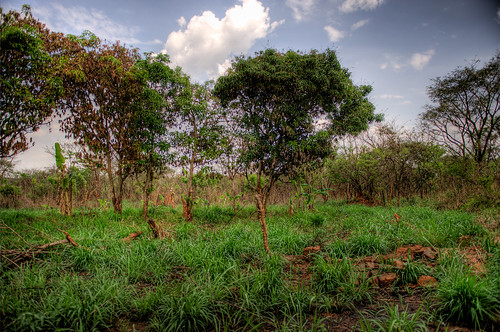
So as we trundle across the plains, at least 40 miles by foot in the last 3 days, I can't help but feel that anything we are doing to improve the life of a child who did survive this place is amongst the only useful things I've ever done with my days.
-A-


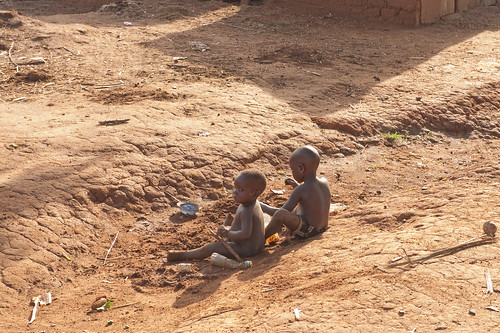
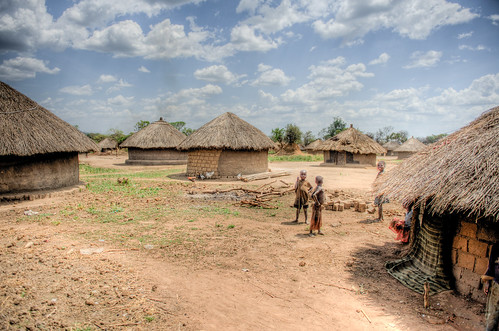
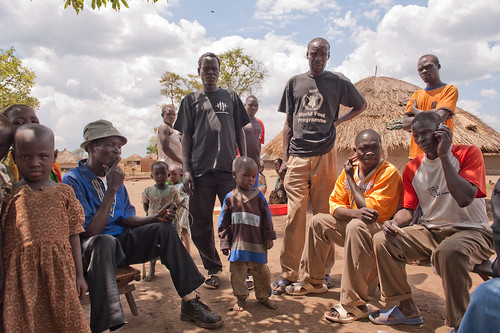
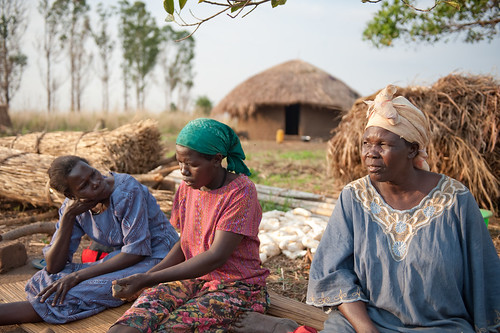
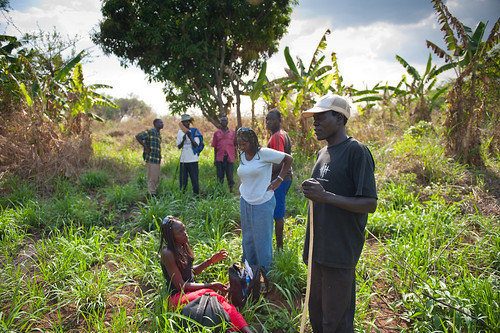
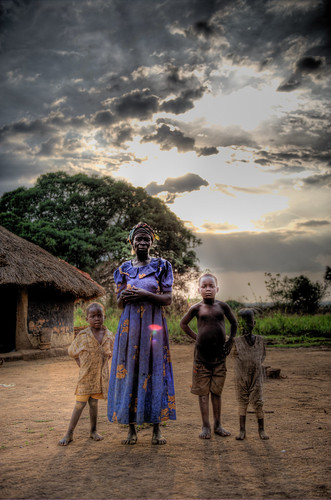

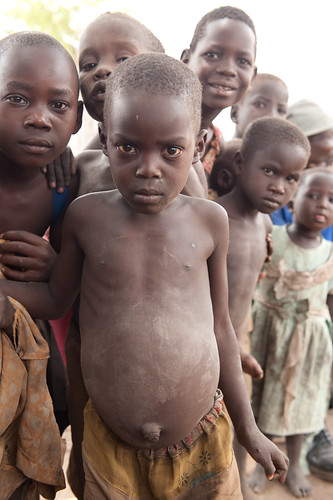
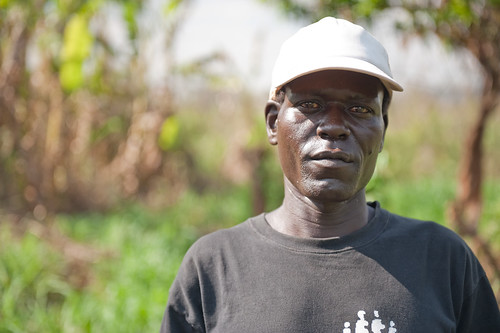
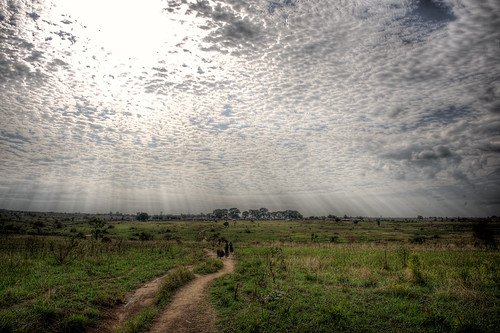
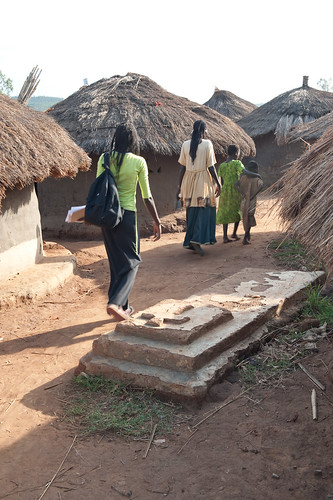
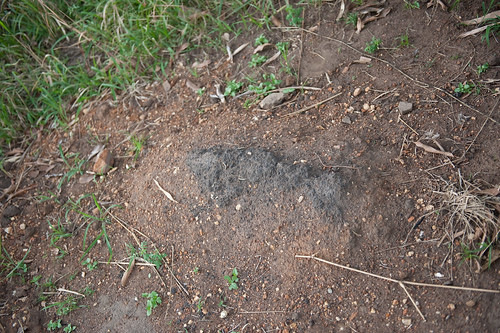
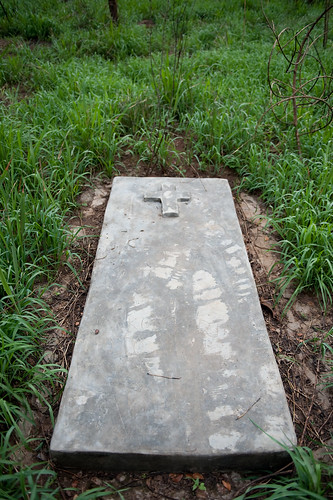
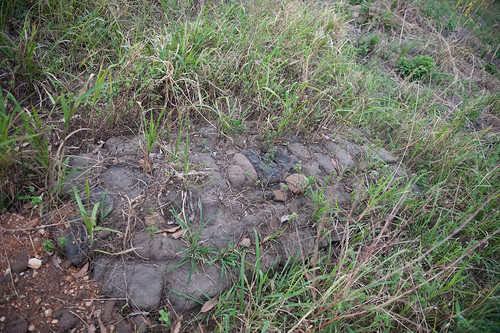

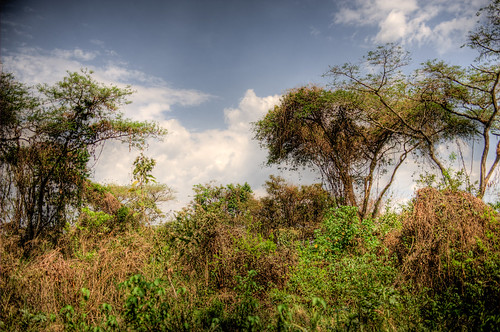
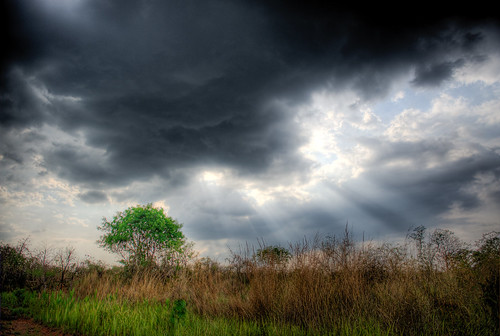


This is beautiful writing, Cloud Man, I can feel the strength of your emotion. The pictures will be a bonus.
ReplyDeleteRight on man.
ReplyDeleteThank you Adam for bringing this to me this way. Carry on.
ReplyDeleteBRAVO! You're words paint vivid pictures. Keep the faith, you're doing good work out there. While trying at times, I'm sure it's very rewarding and exciting. thank you for the blog posts.
ReplyDeleteWe sponsor an child from Kenya - his name is Chondo. It's a great feeling to give back.
We work with an organization thats been instrumental in helping developing countries - Uganda being one of them. We currently sponsor 10 thousand children in 6 different developing countries and we're on track to sponsor 1 MILLI0N more by 2013! We've also built 2 hospitals, 15 schools and 4 biogas digesters.
Have a look at our website if you get a chance
http://www.protrackerplus.com/3013/gtap.html
We're building the Largest Humanitarian Army in the WORLD...and we could always use a few more soldiers!
Cheers,
Kenny & Erica Jones
Sweetness, that was a touching post, you are incredible.
ReplyDelete